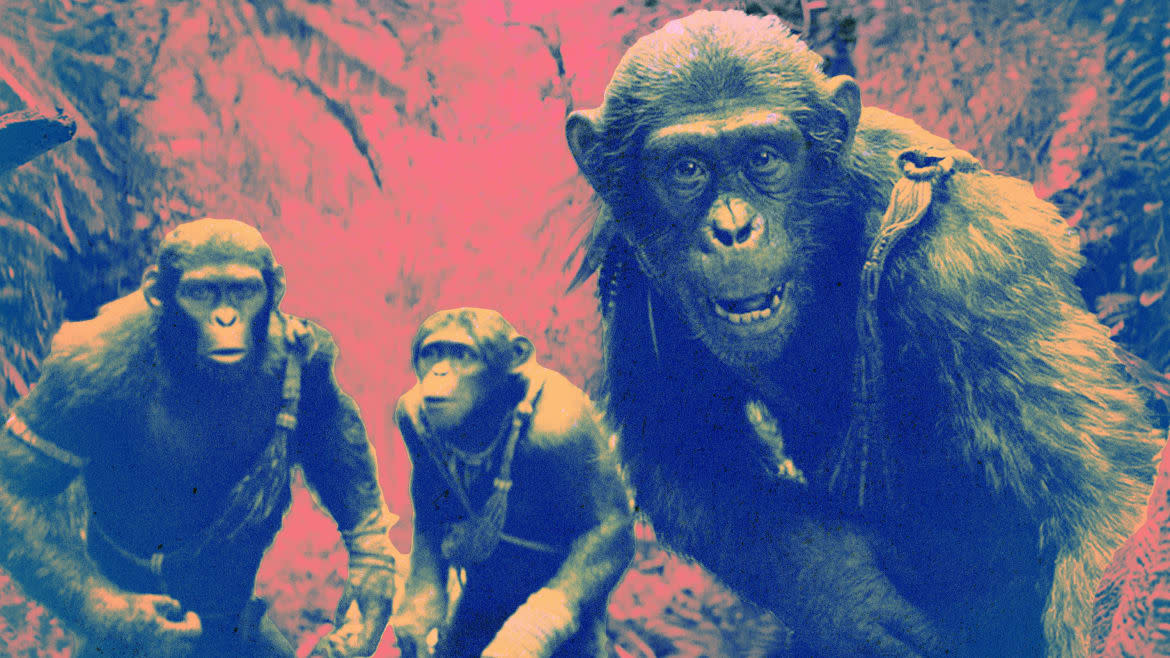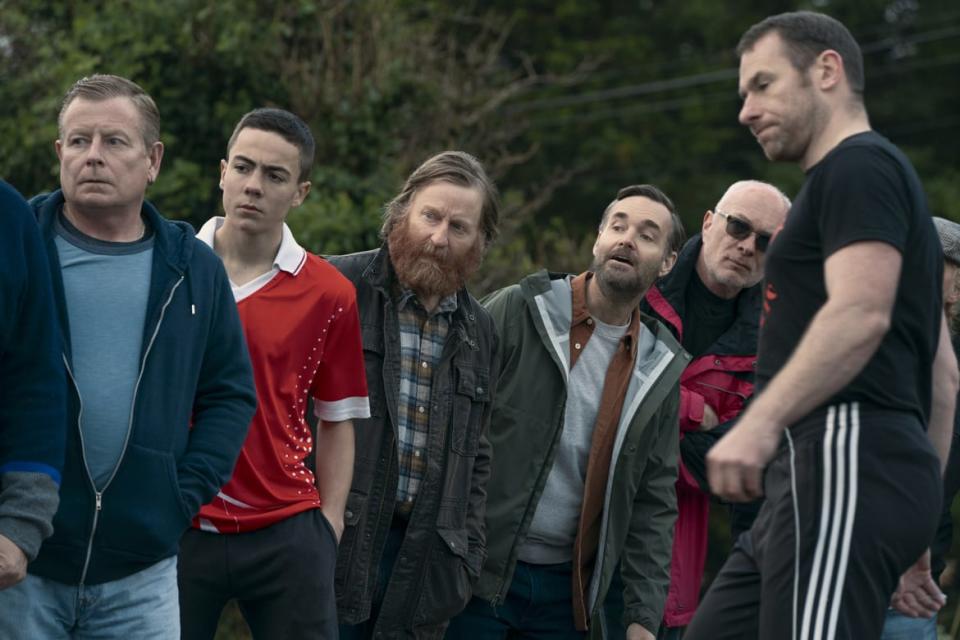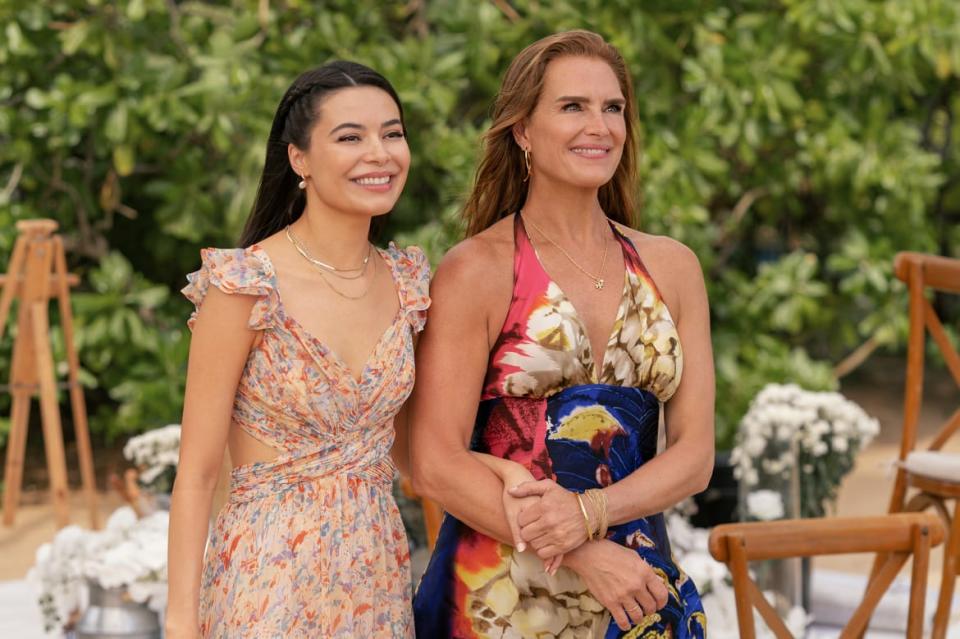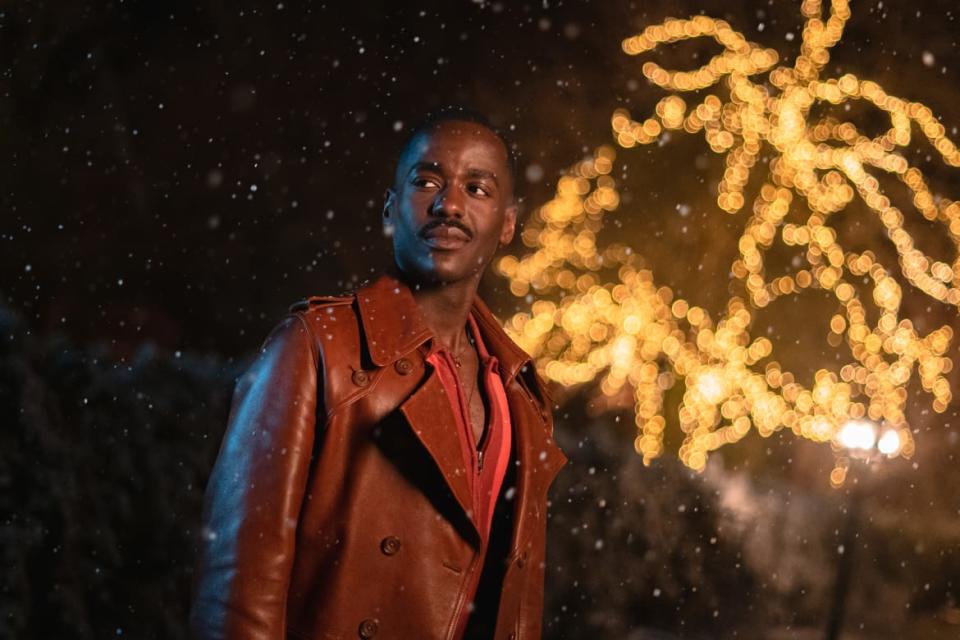Why Do People Keep Seeing the ‘Planet of the Apes’ Movies?

There are roughly 47,000—oh, wait, a new Netflix Original just dropped; make that 47,001—TV shows and movies coming out each week. At Obsessed, we consider it our social duty to help you see the best and skip the rest.
We’ve already got a variety of in-depth, exclusive coverage on all of your streaming favorites and new releases, but sometimes what you’re looking for is a simple Do or Don’t. That’s why we created See/Skip, to tell you exactly what our writers think you should See and what you can Skip from the past week’s crowded entertainment landscape.
Skip: Kingdom of the Planet of the Apes
Kingdom of the Planet of the Apes—the latest in a 10-installment, decades-long franchise—does little more than retread the narratives and exhaust the themes of earlier films. The repetition begs the question: How do these expensive, CGI-heavy movies keep making money?
Here’s Nick Schager’s take:
“Evolution is at the heart of the Planet of the Apes franchise, and yet for its fourth installment in its current reboot phase (and tenth chapter overall), it doesn’t progress so much as stand still. Set generations after 2017’s War for the Planet of the Apes, Wes Ball’s Kingdom of the Planet of the Apes (in theaters May 10) gets close to the future that was first envisioned by Franklin J. Schaffner’s 1968 original, with apes now civilized and verbose, and humans mostly reduced to primitive muteness. As such, this sequel is an attempt to move forward by returning to its roots—a have-it-both-ways approach that prevents catastrophe but also neuters most of its novelty. Too often rehashing its myriad predecessors’ ideas, conflicts, and images, it’s a competent if unexceptional blockbuster game of monkey see, monkey do.
It’s been centuries since Caesar, the first hyper-intelligent ape, led his simian comrades to an idyllic sanctuary where they could thrive without the murderous interference of mankind. In this present, Noa (Owen Teague) and his friends Soona (Lydia Peckham) and Anaya (Travis Jeffrey) climb peaks to reach eagles’ nests in order to steal eggs as part of a ritual in which primates bond with fowl. Noa’s big day is spoiled the evening prior, however, when his egg is crushed during an encounter with a mysterious human intruder who scampers off into the dark before being caught. Desperate to find another egg, the young chimp ventures out of his village at night by himself, only to run into a group of deadly apes with buzzing zap sticks who find their way back to Noa’s peaceful forest-grove home and burn it to the ground, in the process enslaving its inhabitants and murdering Noa’s bird-taming father.”

(L-R) David Wilmot and Will Forte in Bodkin.
See: Bodkin
Bodkin may feel like Netflix’s Only Murders in the Building ripoff, but the series’ willingness to probe our obsession with true-crime podcasts, going so far as to question their morality entirely, makes it a fascinating spin on a pervasive cultural phenomenon.
Here’s Coleman Spilde’s take:
“You, me, and anyone with even a tangential grasp on modern technology may have true-crime podcast fatigue. But for the people of Bodkin, Ireland—the titular, fictional shoreside town in Netflix’s new mystery series Bodkin, premiering May 9—the true-crime podcast wave hasn’t even begun to crest. That’s why, when popular podcast host Gilbert Power (Will Forte), his researcher Emmy (Robyn Cara), and crotchety Guardian investigative reporter Dove (Siobhán Cullen) step foot in Bodkin, they’re welcomed with wide-eyed fascination.
That is, until the trio starts poking around, looking to cover a decades-old cold case that still haunts the town and its colorful characters. When local threads are pulled, their once-knotted history unspools, revealing dark and absurd secrets. Bodkin takes pleasure in stringing viewers along, winding itself past red herrings and red-haired residents who all have something to hide. While the series sometimes mirrors the pace of Bodkin’s small-town life too literally, drifting aimlessly to fill time, its enthusiastic cast—led by the terrifically cast Forte and Cullen—keep Bodkin stimulating enough to be more than just a knockoff Only Murders in the Building. Instead, it skewers the macabre voyeurism of true-crime podcasting, implicating its viewers just as much as its characters, to surprisingly refreshing results.”

(L-R) Miranda Cosgrove and Brooke Shields in Mother of the Bride.
See: Mother of the Bride
Mother of the Bride (no relation to the Father of the Bride series) finds Brooke Shields trying to save her bride-to-be daughter from a horrible fate: becoming a wedding influencer. That thin, ridiculous plot is enough to keep an otherwise listless movie afloat.
Here’s Laura Bradley’s take:
“It’s not easy being a mom—just ask Brooke Shields’s character, Lana, in Netflix’s newest rom-com, Mother of the Bride. One minute, your daughter is holding you close and insisting that she can’t have her wedding without you, and the next, she’s threatening to throw you out of her big day in Thailand because you’ve upset her ‘corporate parent’ by skinny-dipping at their resort. Mothers, you’ve all been there before, right? Anyone…?
On the surface, Mother of the Bride follows Lana as she tries to process the fact that her daughter Emma (Miranda Cosgrove) is engaged to a man she never met. To make things even spicier, the groom-to-be, RJ (Sean Teale), also happens to be the progeny of Lana’s grimiest college ex, Will (as played by certified zaddy Benjamin Bratt)—a not-so-fun fact the entire group finds out together when they arrive in Thailand for the destination wedding. Sadly, none of this is really the meat of the story.”

Ncuti Gatwa in Doctor Who.
See: Doctor Who
Doctor Who kicks off its fifteenth iteration by giving new life to the already-immortal alien at the heart of the British favorite. Ncuti Gatwa takes up the TARDIS, bringing the long-running show into the present with confidence, pizzazz, and its first Black Doctor.
Here’s Allegra Frank’s take:
“The latest season of Doctor Who—the BBC show’s debut on Disney+, with its first-ever simultaneous worldwide release—comes with a lofty goal. Can it generate a new audience for this decades-old series, now on its fifteenth iteration? A charming new lead in Barbie’s Ncuti Gatwa, a celebrated showrunner, and guest stars like Jonathan Groff and RuPaul's Drag Race’s Jinkx Monsoon go a long way toward achieving that aim. But for viewers not already onboard with the TARDIS-hopping Time Lord (or sure what that even means), the newly anointed Season 1 might not immediately convince you to come along.
Premiering May 10, Episode 1 picks up right after December’s Christmas special, in which Gatwa was introduced as the newest Doctor. (There have been 16 actors in this role over the years; Gatwa is the 16th, but canonically referred to as the Fifteenth Doctor.) But a quick recap will bring newbies up to speed: The Doctor is the last being of his kind, an alien from a now-extinct faraway galaxy in the future who can ‘regenerate’ into new forms upon death. They are, in that way, immortal. Unmoored without a home planet, the Doctor travels through time at their leisure, with the help of a classic blue police box that doubles as a spaceship.”
Sign up for our See Skip newsletter here to find out which new shows and movies are worth watching, and which aren’t.
Get the Daily Beast's biggest scoops and scandals delivered right to your inbox. Sign up now.
Stay informed and gain unlimited access to the Daily Beast's unmatched reporting. Subscribe now.
